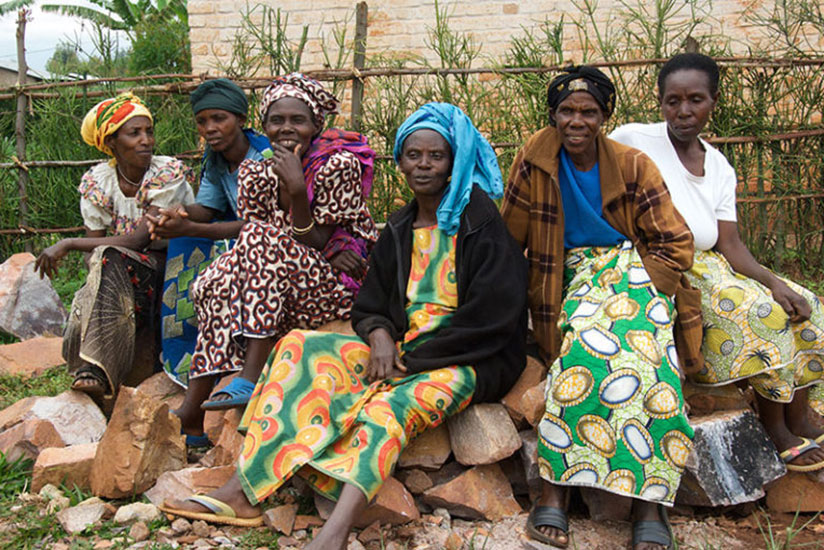
In Rwanda, many widows are survivors of the 1994 Genocide against the Tutsi. Statistics from the Association of Genocide Widows (AVEGA Agahozo) indicate that over 25,000 widows were registered immediately after the massacre.
Valerie Mukabayire, the president of Avega Agahozo, and a widow herself, describes the pain of losing a spouse as that which brings enormous sadness and emptiness.
“Losing a husband encompasses a lot of things, you find yourself alone in a way. The emptiness digs a void so deep that you wonder if you will ever feel whole again,” she says.
“Some people tend to think that losing a husband mainly means losing financial support but even those who are rich are devastated because it goes beyond that. But women are always resilient, one works twice as hard to maintain the dignity of her family,” Mukabayire says.
In the organisation, Mukabayire says that the widows are provided with both financial and emotional support. They are provided with access to health services; they construct for them houses, especially the elderly ones. Others are given training to gain skills to engage in income generating activities and are urged to join cooperatives.
This way, they have managed to survive and have turned out strong and their families are on a firm ground. Yes, challenges still prevail, as the president points out, and most are related to economic and social factors.
“ I can’t say we have done away with all the challenges, it is still a work in progress and we want to keep on transforming the lives of these women and so far with the achievements we have attained, more will surely be done,” she says.
Coping with life as a widow
Therese Mugorewera, one of the beneficiaries of AVEGA, recalls that after losing her husband, life became so hard that the future seemed more of a haze. Her days and nights turned into moments of weeping, she hated her present and resented the thought of her future.
“The death of my husband was so sudden to me, I know it was the Genocide but I didn’t expect him to leave me, at least not that soon. I was alone and frightened. I fell into depression till I joined this organisation,” the 54-year-old narrates.
It’s been 22 years and Mugorewera is happy to say that she has moved on with life.
“We share our stories and it has healed our hearts, the business skills we have been given have helped us progress. Right now, I am a trained weaver with skills in crafts and through this, I earn a living,” she says.
They had spent 15 years together when Nurah Asiimwe’s husband passed on, she recalls going silent when she got the sad news and for a good number of hours, all she felt was detachment.
“The pain was so much that I couldn’t feel it anymore. I didn’t know what I was going to do, my husband was gone and that was the reality I had to face. It was hard, I felt like giving up but my children were left with only me to care for them,” she narrates.
Years later, the mother of three slowly started picking up the pieces of her life, she started a business, managed to construct houses for rent where she gets school fees for her little ones.
Pamela Mudakikwa, the Communications Officer at the Ministry of Gender and Family Promotion, says that support towards widows is mostly rendered through organisations that have direct interaction with the widows such as AVEGA.
“We also ensure to take part and contribute towards all the programmes they have in regards to empowering widows in the country. We believe that continued participation of widows in social protection schemes can also be of great help,” Mudakikwa says.
Extracted from “Widows: Facing life after death of the family breadwinner”. By Donah Mbabazi, The New Times.
